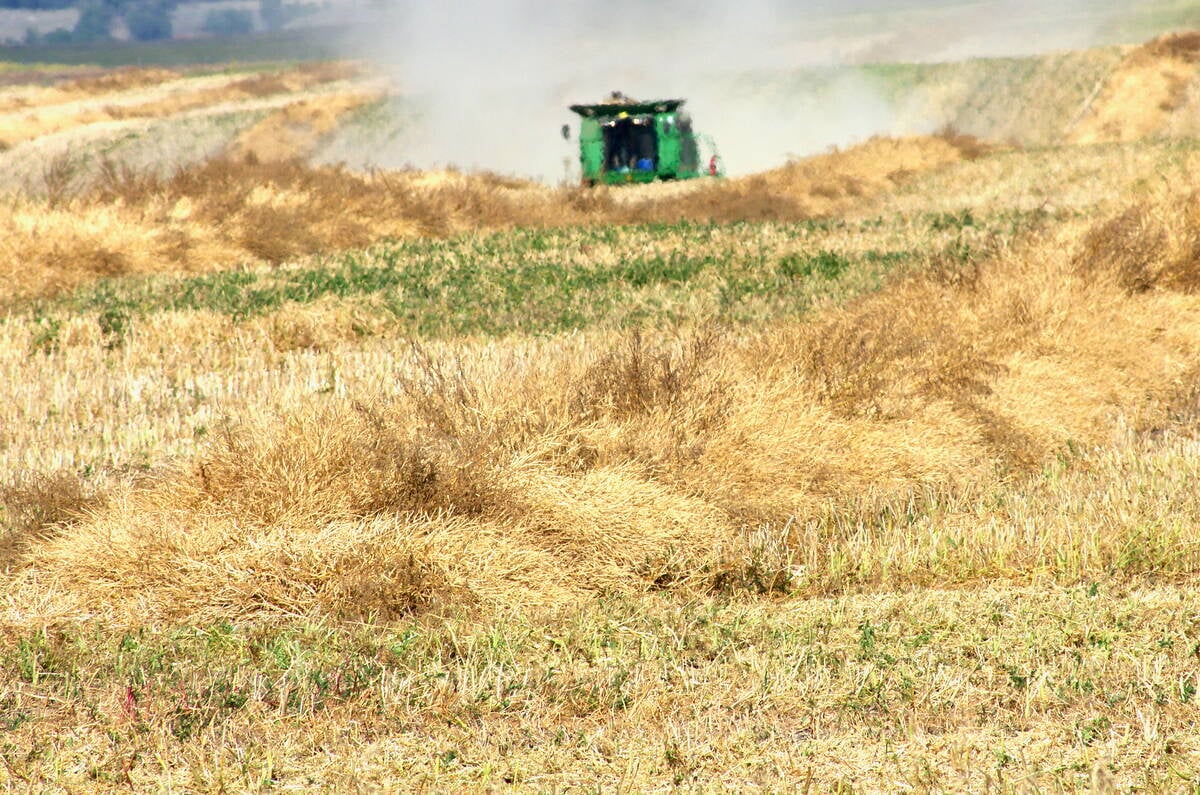Judge orders Sask. farmer to pay for grain he failed to deliver, even though he didn’t provide a contract signature
A Saskatchewan farmer intends to appeal a recent court decision that found a thumbs-up emoji served as his signature on a grain contract.
The lawyer for Chris Achter said they would not comment further at this time. As it stands, Achter is ordered to pay South West Terminal more than $82,000 after failing to deliver 87 tonnes of flax in November 2021.
The King’s Bench decision in early June drew international attention, with many questioning how a single emoji could be interpreted as a binding signature.
Read Also

Manitoba searches for Plan B on canola oil exports
A new report explores Manitoba’s current canola oil trade and possible alternative markets to the U.S.
University of Saskatchewan law professor Doug Surtees said anything that communicates acceptance can be valid. For example, in person people might shake hands, nod their heads or even give a real-life thumbs-up to indicate acceptance.
These two parties had a history of dealing by text messages.
“In this context… would a reasonable person, in the position of the company making the offer, understand that thumbs-up to mean that the contract was agreed to, and clearly the judge concluded that yes they would,” he said.
SWT sued Achter for breach of contract and damages, saying he had agreed to deliver the flax when he responded to a photograph of the contract with thumbs-up.
The contracted price in March 2021 was $669.26 per tonne.
According to the agreed statement of facts, Kent Mickleborough, a SWT grain buyer, contacted producers that month regarding fall flax deliveries.
Achter’s father, Bob, replied to Mickleborough, who when phoned Chris to discuss a contract. Mickleborough drafted the contract, signed it and sent a photo on his cellphone, including the message, “Please confirm flax contract.”
Achter replied with the emoji.
However, he did not deliver the flax that fall. The spot price on Nov. 30, 2021, was $41 per bushel or $1,614.09 per tonne.
In court documents, Mickleborough said he had done 15 to 20 contracts with Achter since 2015. He said during the COVID-19 pandemic he typically dealt with customers by email or text messages.
“However, even prior to the pandemic, I had done contracts with producers by email and text message,” his affidavit said. “Prior to the contract in issue in the within proceeding, I had completed four contracts with Achter Ltd. by having Chris execute the contract by text message from (his phone number).”
Mickleborough provided examples with Achter replying “OK” or “looks good to me” and other terms of agreement.
Justice Timothy Keene said there was “an uncontested pattern of entering into what both parties knew and accepted to be valid and binding” contracts.
But Achter said he was busy calving when the flax contract arrived and his thumbs-up was simply to acknowledge receipt. He said most of his contracts with SWT were for grain he already had on hand.
“I did not and would not have entered into the flax contract without first reviewing the terms and conditions with specific reference to the Act of God clause,” said Achter’s affidavit, referring to production contracts.
Keene observed that the parties’ difference of opinion on the emoji’s definition led them “to a far-flung search for the equivalent of the Rosetta Stone in cases from Israel, New York State and some tribunals in Canada, etc. to unearth what a thumbs-up emoji means.”
He said he preferred a simpler approach and used dictionary.com: “it is used to express assent, approval or encouragement in digital communications, especially western cultures.”
Keene said an emoji is an electronic action that can be used to signal agreement or acceptance under the Electronic Information and Documents Act, 2000.
He disagreed with Achter’s lawyer’s submission that courts would be flooded with cases requiring interpretation of emojis.
He said the case is novel, but the court can’t stem technology and common usage.
“This appears to be the new reality in Canadian society and courts will have to be ready to meet the new challenges that may arise from the use of emojis and the like,” Keene wrote.
He found Achter responsible to pay $82,200.21 plus interest and costs.
University of Calgary law professor Michael Ilg said the case is noteworthy for how much work a single emoji is doing.
“One single thumbs-up is not only acceptance of the contract; it was the seller’s signature as well.”
He said the past dealings between the two parties are the most important feature of the case.
“If this were a one-time deal, I don’t see how that emoji could have formed a contract,” he said. “The problem for the farmer is that three, four, five times before in the past they had entered into deals in just such a sloppy way. If you’re going to conduct your affairs in a really informal way through text or social media apps and negotiate business and enter into contracts, you shouldn’t be surprised that a contract forms through those communications.”
He and Surtees said the results of this case could have implications beyond agriculture and that people should take more care when entering into contracts.
















